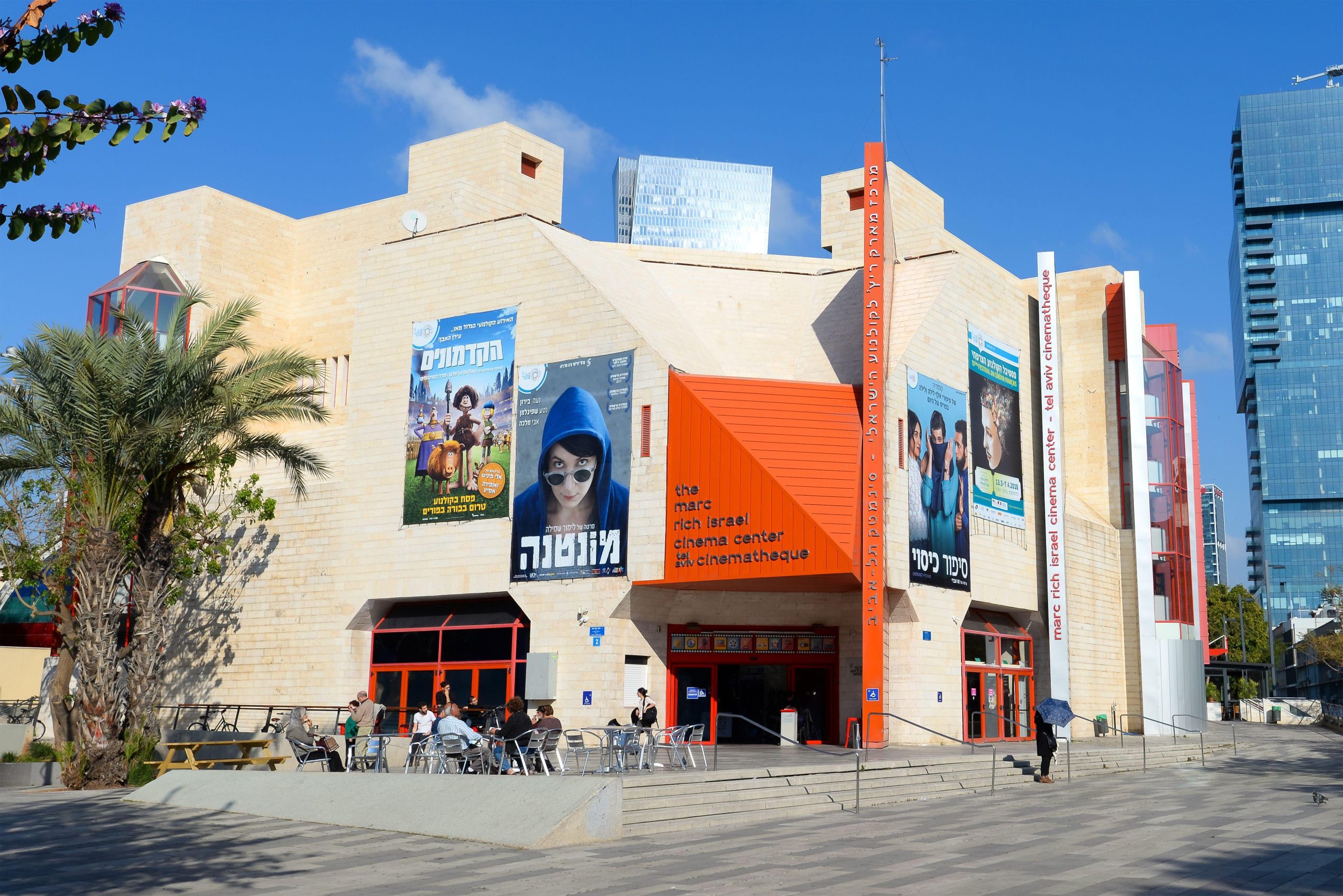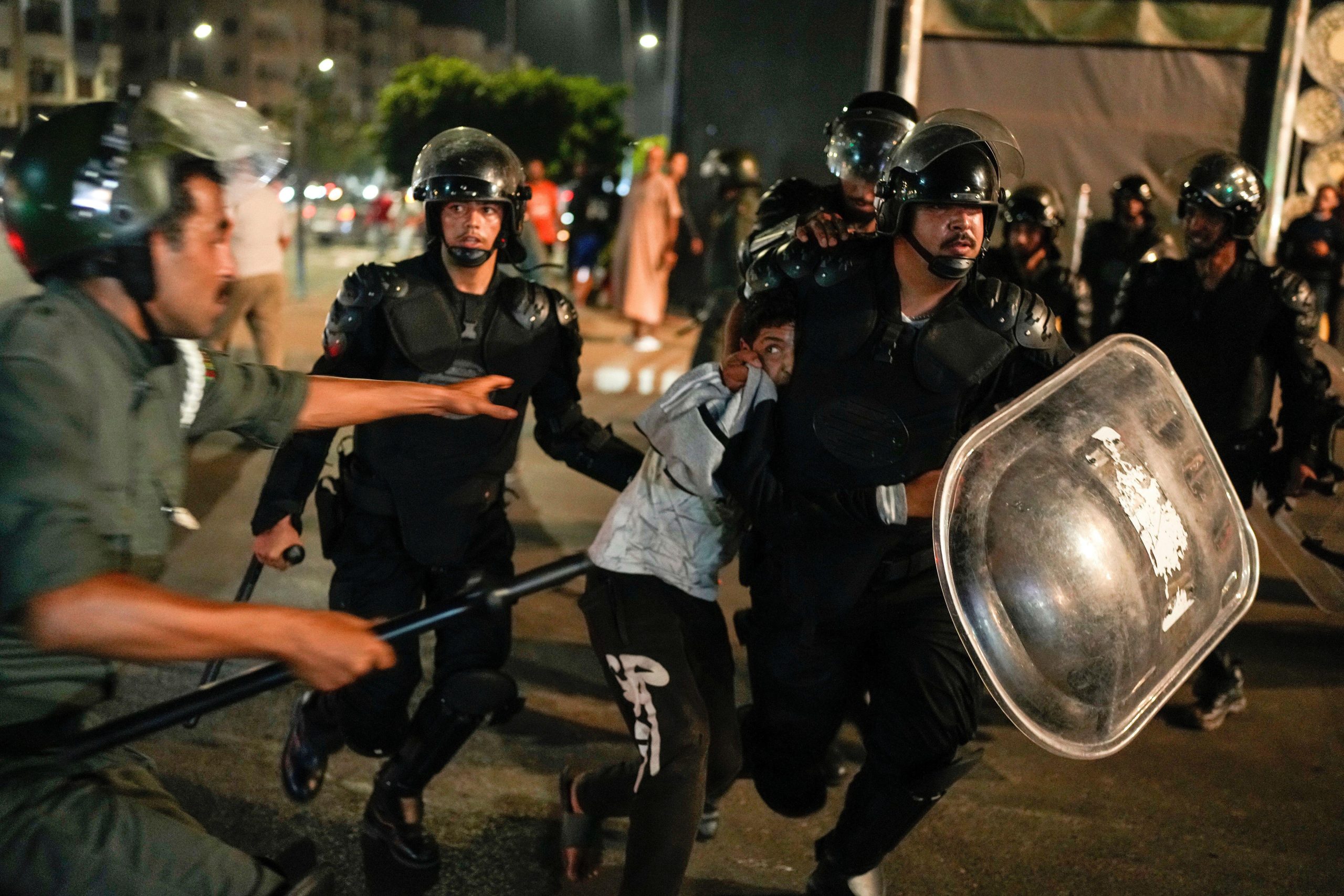Israeli authorities are silencing Palestinian culture and history in a censorship surge that could soon include left-wing Jewish opponents of Benjamin Netanyahu’s coalition, academics have said.
Last week, Israeli police raided the Educational Bookshop in East Jerusalem, one of the most prominent Palestinian cultural institutions in the occupied territory. Two of its owners, Mahmoud Muna and Ahmad Muna, were arrested on suspicion of “disturbing the public order”, interrogated, detained for 48 hours, then placed under house arrest for five days.
“I assume the next stage will be the Israeli left,” Menachem Klein, an Israeli political scientist and emeritus professor at Bar Ilan University, told Index after this event. “We are on the way to an authoritarian regime during ongoing wartime and it is easy to use emergency rules to silence freedom of expression.”
During the raid, detectives allegedly inspected books using Google Translate and took away ones they deemed to be possible incitement to terrorism because they contained words such as “Palestine” or “Hamas”.
One of the books presented as proof of possible incitement was a children’s colouring book titled From the River to the Sea, which was allegedly found in the store’s warehouse. The phrase, which has proved controversial, is used by some to imply that Israel should be replaced by a Palestinian state from the Jordan River to the Mediterranean Sea. Critics have labelled this confiscation laughable – in a comment piece, Haaretz ridiculed that a children’s colouring book is being “considered a ticking time bomb”. But government supporters have said that the book does constitute incitement.
There has so far been no criticism of the raid from any major Israeli opposition leaders, but a member of the Knesset (MK) for the left-wing Democrats party has allegedly filed a query in parliament questioning the police’s actions. Prominent Israeli authors and cultural personalities have also spoken out about it. However, the absence of broader political opposition means the authorities are unlikely to be deterred in the future from widening their targets on cultural institutions.
“We’ve undergone a change in Israel whereby anyone who incites to terrorism has to pay a price regardless of whether he is Arab or Jewish,” said Shamai Glick, head of the right-wing organisation B’tsalmo, told Index. He argues that authorities did not go far enough and should close the bookstores.
This recent intimidation comes amid crackdowns on Israeli films that are critical of the government, especially those dealing with alleged crimes related to the mass displacement of Palestinians during what Israelis term the 1948 War of Independence and Palestinians term the Nakba, or “catastrophe”.
In December, Israel’s Minister for Culture and Sport Miki Zohar threatened to halt government funding for the Tel Aviv Cinematheque after it showed films deemed to be pro-Palestine at Solidarity Human Rights Film Festival 2024.
One of these films was the previously-censored Lyd, which depicts the 1948 expulsion of that town’s Palestinians and imagines what Lyd would be like if not for the Nakba. Two months prior, the police had banned a screening of Lyd in Jaffa after Zohar said the movie was “inciting and mendacious” and “slanders Israel and Israeli soldiers”.
Cutting government funding to a cultural institution in Israel is a death sentence, as there is little private investment in the arts. In a letter to the Minister of Finance Bezalel Smotrich, Zohar wrote that the Solidarity Festival had shown films that “are against the state of Israel” and which “disparage the soldiers of the Israel Defense Force[s]”, according to the Jewish Independent. Smotrich has set up a committee to determine whether the festival violated funding laws.
Lyd co-director Rami Younis said the recent raid on the bookstore should be seen as an escalation of national cultural censorship. “This is another syndrome of the rise of fascism. Are books the enemy? We’ve seen regimes in the past that declared books and songs the enemy. And they’re all dark regimes and this is where Israel is heading.”
“If it’s not stopped, it will get much worse very soon,” he said.
The government has also started deploying a little-used British Mandate-era law dating back to 1917, which allows the Culture and Sport Ministry to review films before they are shown at cinematheques, thereby stopping screenings of contentious films.
According to Haaretz, the Israeli Culture and Sport Ministry’s Film Review Council warned cinematheques in November not to screen filmmaker Neta Shoshani’s documentary film 1948: Remember, Remember Not, as it had not been granted the council’s approval. The film, compelling and thought-provoking, looks at the War of Independence / Nakba through testimonies and interviews with Israelis and Palestinians. The film lost several screenings as a result, but ultimately was approved by the council.
In response to the request, cinema directors said they had not been asked to clear films with the council previously. Normally, the council sets age ratings rather than undertaking political censorship.
Filmmakers and festival organisers in Israel are now being deterred from showcasing work that is critical of the government. The coalition’s threatening behaviour towards art and culture that raise questions about Israel’s foundation, probe Palestinian displacement or allege violations by the Israel Defense Forces mean that many cultural workers are steering away from controversial topics.
“When they threaten, you don’t feel like taking a chance,” Shoshani recently told The Jewish Independent. “There is a chilling effect,” she said.
“This means that culture in Israel is rapidly becoming non-critical and doesn’t go to [controversial] places simply because there is no one to fund this type of film. If I enter controversial realms, I won’t get funding and at the end of the day, we all have to make a living. So clearly people exercise self-censorship even though they don’t admit it.”
“This is something that happens under every dictatorial regime,” Shoshani added. “In a fascist regime, culture becomes propaganda and not culture. Gradually, Israeli culture is becoming like that.”
In response to criticism that the Israeli government is impinging on free expression, Zohar’s office said: “We will continue to defend freedom of expression but we won’t let extremist and delusional elements incite and harm under the sponsorship of the state of Israel.”
The censorship of Shoshani’s film also demonstrates how the Israeli state is attempting to stop the public from seeing archival footage and important documentation produced by researchers. The public broadcaster Kan (also known as the Israeli Public Broadcasting Corporation), which funded the film, has not aired it for more than a year, due to what it describes as wartime sensitivities. “It will be screened soon,” a spokesperson said. Minister of Communications Shlomo Karhi has allegedly pressed Kan to scrap the film entirely, according to Israeli news website ICE (Information, Communication, Entertainment).
But Benny Morris, a leading Israeli historian who appears in Shoshani’s film and who was born in 1948 himself, told Index that it is the government that is distorting and covering up the real events of the War of Independence.
Cultural censorship is also only the beginning of a wave of restrictions on free expression in Israel. The coalition government is currently pushing through other anti-democratic bills, including one designed to restrict the speech of academics, and another that would effectively reduce the ability of Palestinian citizens of Israel to vote in elections and decrease their Knesset representation.
“Yes, there is a government effort to censor and lie about 1948, about Israeli war crimes in that war and hence influence how Israelis see their history,” said Morris. “Along with other subversions by the government of Israeli democratic norms, they are threatening Israel’s culture and historiography and trying to replace truth with propaganda.”






